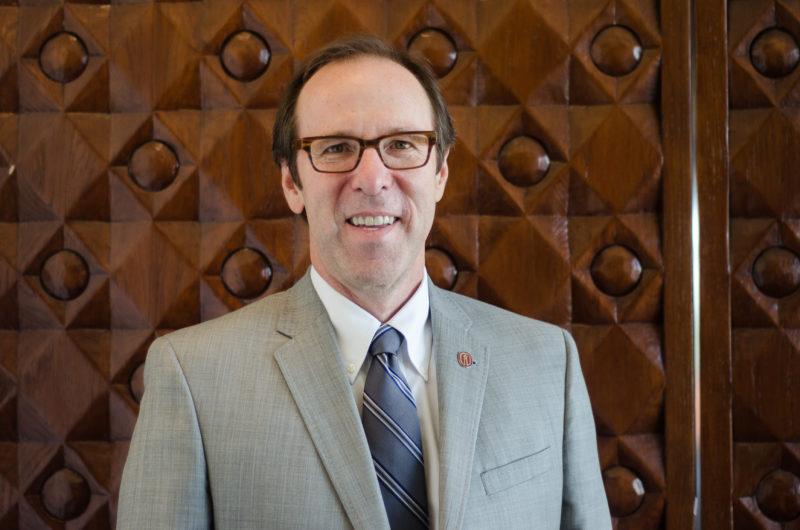“People who bring light into the world wrench it out of darkness and contend openly with darkness all of their days.” I shared this quotation with faculty and staff during opening Faculty Assembly only days before fall classes began. It comes from a book by Krista Tippett, American journalist and host of the “Speaking of Faith” and “On Being” podcasts.
Just a few weeks earlier the violent, racially motivated protests on the campus of University of Virginia in Charlottesville had occurred. Our students would soon return to Trinity with concerns about the issues of race in our country and whether these types of protests will visit our campus. I selected Tippett’s words to provide some inspiration as we prepared to welcome students to campus for the start of the new academic year.
While America is split among polarized opinions about many topics, Trinity remains united in the commitment to promote genuine dialogue and critical thinking. We accomplish this by facilitating challenging conversations within our community. Through conversation we shine a light on the topics that we must examine to live up to our values. Through inclusive conversation we can combat polarization.
Civil conversations start with active listening. I am proud to hear faculty and staff talk with each other about the social issues that affect our country, even if the topics feel awkward. Some suggest ways we can raise issues with students that put race front and center in constructive dialogue. Deneese Jones, vice president of academic affairs, has organized workshops for department chairs to understand how implicit bias can influence hiring. A faculty group is developing a new generation of “˜Difficult Dialogues’ for our campus. Planned for spring 2018, this program includes curricular initiatives and workshops designed to create a culture of inclusion and respect for diverse, even conflicting points of view. These examples, and many others, are important, yet they are not enough. Later this week I will meet with students exploring ways to strengthen our conversations and make Trinity more inclusive. These conversations all seek to make a difference on our campus and in our world. I welcome them. We need more of them.
At times it is hard to for me to believe that in 2017, symbols of racism and intimidation are even relevant today. Sadly, they remain powerful. I strive to read books that stretch my perspective. I respectfully raise uncomfortable questions with friends from all racial and ethnic groups, striving to build a personal map for my understanding. I seek ways to actively welcome and include others.
Last week I heard a father talk about his pain when his son came home from kindergarten with questions about a racial slur that the son had encountered. In describing the moment, the father said, “Racial and ethnic slurs are lethal. They kill our ability to empathize. They kill our ability to see a whole person and respect them in their full humanity.” I seek to understand and carry with me the pain that father shared as his words echo in my head.
Challenge and discomfort are essential in an academic institution. It is why we exist. It is what we do best. Challenge and discomfort are essential for all of us on our journeys to become fully human, on our journeys to develop true respect for all our fellow human beings. We all share the responsibility to “wrench light out of the darkness.”




